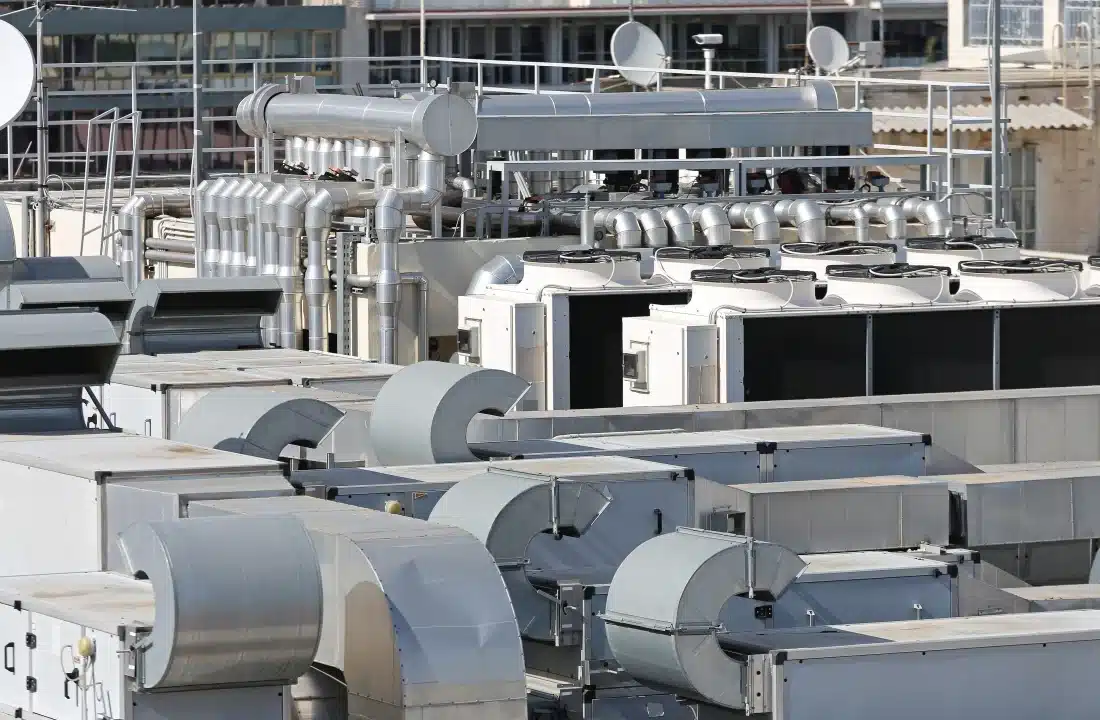Heating, Ventilation, and Air Conditioning (HVAC) systems have revolutionized indoor comfort and productivity. But have you ever wondered how these systems came to be? In this article, we’ll explore the fascinating history of HVAC systems, HVAC systems cleaning and their pros, and cons.
Ancient Roots:
The concept of HVAC dates back to ancient civilizations:
- Egyptians used windcatchers to ventilate homes (3000 BCE).
- Greeks and Romans utilized hypocausts (space heating) and aqueducts for cooling (500 BCE).
- Chinese developed advanced ventilation systems (2000 BCE).
The Industrial Revolution:
The modern HVAC system began taking shape during the Industrial Revolution:
- Steam heating systems emerged (1700s).
- Mechanical ventilation systems developed (1800s).
- First air conditioning systems used ice and evaporation (1830s).
The Breakthrough:
Willis Carrier’s invention of the electric air conditioning unit in 1902 marked a significant milestone. Carrier’s design controlled humidity and temperature, paving the way for modern HVAC systems.
The Importance of Maintenance and Cleaning in Advanced HVAC Systems
As we continue to evolve in the realm of advanced Heating, Ventilation, and Air Conditioning (HVAC) systems, it’s crucial to recognize the significance of regular maintenance and cleaning. A well-maintained HVAC system not only ensures optimal performance but also promotes energy efficiency, improves indoor air quality, and extends the lifespan of the equipment.
Among the reputable duct cleaning service providers, Unique Providers stands out as a reliable choice for air duct cleaning services in Mississauga, Brampton, and Vaughan, offering effective solutions to maintain clean indoor air.
Why Maintenance is Crucial
- Energy Efficiency: A dirty or neglected HVAC system consumes more energy, leading to increased utility bills and a larger carbon footprint.
- Indoor Air Quality: Failing to clean and maintain HVAC systems can circulate pollutants, allergens, and bacteria, compromising indoor air quality.
- Equipment Longevity: Regular maintenance prevents wear and tear, reducing the need for costly repairs and extending the system’s lifespan.
- Safety: Poorly maintained HVAC systems can pose safety risks, such as carbon monoxide leaks or electrical hazards.
Key Maintenance Tasks
- Filter Replacement: Regularly replace filters to ensure clean air circulation and prevent dust buildup.
- Coil Cleaning: Clean condenser and evaporator coils to maintain efficient heat transfer.
- Drainage Inspection: Check and clean drainage systems to prevent water damage and mold growth.
- Thermostat Calibration: Ensure the thermostat is accurately calibrated.
- Duct Cleaning: Use specialized equipment to remove debris and contaminants from ducts.
Scheduling Maintenance
- Seasonal Checks: Schedule maintenance before peak summer and winter seasons.
- Bi-Annual Filters: Replace filters depending on usage.
- Professional Inspections: Hire a certified technician for annual inspections.
Types of HVAC Systems:
- Split Systems: Separate units for heating and cooling.
- Packaged Systems: Single unit for heating and cooling.
- Ductless Mini-Split Systems: Flexible, energy-efficient solutions.
- Heat Pumps: Efficient heating and cooling.
The HVAC system has come a long way since its ancient roots. While modern systems offer numerous benefits, it’s essential to acknowledge the potential drawbacks. As technology continues to evolve, we can expect even more efficient, sustainable, and innovative HVAC solutions.
Conclusion
Regular maintenance and cleaning are vital for optimal HVAC performance. By prioritizing these tasks, you’ll enjoy energy efficiency, improved indoor air quality, and extended equipment life. Schedule maintenance today and breathe easy knowing your HVAC system is running smoothly.









